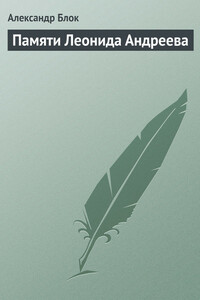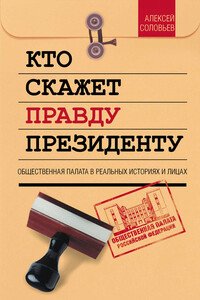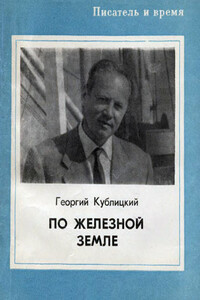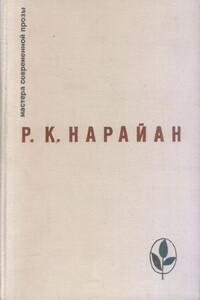День, когда рухнул мир - [17]
I shivered: two demented spots stared at me – the piercing eyes of the baby boy, one of the most unfortunate children on earth. When his eyes caught mine I let out a cry.
I stepped outside. Dawn was breaking. The uneasy stillness of the early morning light hung in the air. A light smoky cloud appeared over the distant spur of the granite hills of Delegen. The wind chased it somewhere eastwards.
I had been told that this was from the explosion. The hill is crumbling, soon all there will be left is dust… so I was told.
„Greetings, son!“ said my father. He unexpectedly appeared next to me and now hurriedly vanished, evaporating over the steppe. „Son, you can and you must walk barefoot over your native earth. This is your land, the land of your ancestors…“
„Then return my native land to me!“ I cried out. „As my father wished, I want to walk barefoot through the green grass, I want to drink the water from my lakes, I want to lie on the clean, good earth and look up at the clear, good sky. Do you hear me, my country?“
But it was silent. And I, a forty-two-year-old man, stood in the middle of the steppe and howled like the last remaining wolf of the Genghiztau before his death.
And once again the earth shook.
5–8 august, 1988 Semipalatinsk
MY OPINION
THE WORLD NEEDS TO BE RESTRUCTURED – LET US BEGIN WITH US
My people – fellows townsmen, my multinational Kazakhstan has so many physical and mental wounds that one cannot resist shuddering at simply imagining them and can hardly restrain the vision of horrors, shame and tragedy of the people. And, I wonder: which wound is the first we should talk about, which one should we be reminded of?
For many years, A– and H-bombs were tested in the Semipalatinsk region, my native land.
I was a boy of seven, when I was a witness of the first H-bomb explosion in the Chinghiz mountains. I remember my grandfather’s mournful face, myself repeating some words from the Koran. This moment, one of faith in salvation with the help of the Most High is still alive in me; I set great hopes on Him at the time, while being taken back into the rocky high country, in the awful deadly-still emptiness. The first line of my childhood’s unfinished verse began as follows: "The day the world collapsed".
The brightest streaks of the H-bomb explosion… I had never seen such terrible colors before. The inconsolable grief, sufferings and agonizing death of dear and near ones, the lies of the powers that be– all merge into a single tangle.
I am forty three now. On seeing the sufferings of Aral, Semipalatinsk, Dzhambul and Novy Uzen, the humiliated and insulted children’s souls are calling upon me to accept death together with them: I always feel like turning into an ant and dying under the feet of a hungry child. I plead guilty for the human mind’s deeds because great faith in science has converted us into obedient slaves. We have become hostages of progress. The tragedies of Hiroshima and Nagasaki, the devastation of the Aral area, forty-years-long nuclear tests on the Semipalatinsk proving ground – MADNESS.
Today, as always, we talk much, but do little. The great words-FREEDOM, EQUALITY, BROTHERHOOD – have ruthlessly been degraded and emasculated of their meaning. Over many decades there have flourished violence, boorishness, ignorance and self-seeking in this country, which proves that our talk about morals has, for many years, been just prattling. Can it really be true that a feeling of mercy has been exterminated from our everyday life? I remember, however, how my people joined their efforts in building houses, not only for ones who lost all their possessions in a fire, but also for those who hardly made both ends meet. I remember my grandfather having taken me to a mosque and asking me to give alms to the beggars. Then the government declared that we did not have beggars any more.
Great Pushkin’s verses come to my mind: "How in this cruel age I celebrated freedom, and begged for mercy towards those cast down." Pushkin’s behests are the moral demand of any epoch that embraces charity, compassion.
By the will of fate, and by the strength of my mind I always tried to stand aloof from notorious politics, as much as possible. I fervently defended the islet of my loneliness. I was happy that I was getting on in my effort, with difficulty though, believing that in the conditions of moral stagnation one’s active work is a long wayfarer’s cry in the wilderness.
The writer always tries to smooth the wrinkles of real life, of our society whose moral make-up has become intolerable. Our souls have coarsened, venom and envy boil in man. Callousness has wrapped up our home only to lay bare the awful gulf formed between the matter and mind. We have broken from the morals common to all mankind and have repudiated ethics. It is extremely difficult to come into one’s own in such a life. All of us are now having harsh times: a writer, a worker, a scholar, to mention just a few. We have been building socialism for 70-odd years now and have been standing in cues of the hungry.

"Литературная газета" общественно-политический еженедельник Главный редактор "Литературной газеты" Поляков Юрий Михайлович http://www.lgz.ru/.

«Почему я собираюсь записать сейчас свои воспоминания о покойном Леониде Николаевиче Андрееве? Есть ли у меня такие воспоминания, которые стоило бы сообщать?Работали ли мы вместе с ним над чем-нибудь? – Никогда. Часто мы встречались? – Нет, очень редко. Были у нас значительные разговоры? – Был один, но этот разговор очень мало касался обоих нас и имел окончание трагикомическое, а пожалуй, и просто водевильное, так что о нем не хочется вспоминать…».

Деятельность «общественников» широко освещается прессой, но о многих фактах, скрытых от глаз широких кругов или оставшихся в тени, рассказывается впервые. Например, за что Леонид Рошаль объявил войну Минздраву или как игорная мафия угрожала Карену Шахназарову и Александру Калягину? Зачем Николай Сванидзе, рискуя жизнью, вел переговоры с разъяренными омоновцами и как российские наблюдатели повлияли на выборы Президента Украины?Новое развитие в книге получили такие громкие дела, как конфликт в Южном Бутове, трагедия рядового Андрея Сычева, движение в защиту алтайского водителя Олега Щербинского и другие.

Курская магнитная аномалия — величайший железорудный бассейн планеты. Заинтересованное внимание читателей привлекают и по-своему драматическая история КМА, и бурный размах строительства гигантского промышленного комплекса в сердце Российской Федерации.Писатель Георгий Кублицкий рассказывает о многих сторонах жизни и быта горняцких городов, о гигантских карьерах, где работают машины, рожденные научно-технической революцией, о делах и героях рудного бассейна.

Свободные раздумья на избранную тему, сатирические гротески, лирические зарисовки — эссе Нарайана широко разнообразят каноны жанра. Почти во всех эссе проявляется характерная черта сатирического дарования писателя — остро подмечая несообразности и пороки нашего времени, он умеет легким смещением акцентов и утрировкой доводить их до полного абсурда.